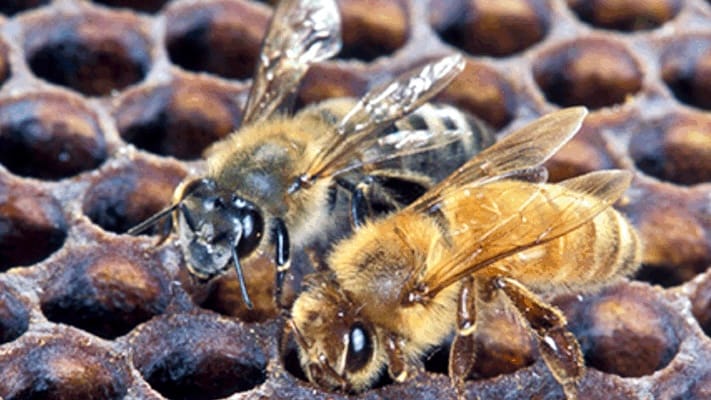“Killer Bees” Found in Barbour County
ADAI has launched monitoring program for other Africanized swarms

The Alabama Department of Agriculture and Industries (ADAI) has confirmed the presence of Africanized honeybees in Barbour County after a swarm was collected by local beekeepers. The swarm, which was feral and identified as Africanized, has since been euthanized in an effort to protect Alabama’s broader honeybee population.
In response to the discovery, ADAI has launched a targeted monitoring effort. Traps have been placed within a five-mile radius of the detection site to help determine whether additional Africanized honeybee activity exists in the area. These steps are part of the state’s broader initiative to support local beekeepers and safeguard essential pollinators.
“There is no reason for public concern at this time, but we are treating this situation seriously,” Agriculture Commissioner Rick Pate said. “Our team is actively collaborating with local beekeepers and entomology experts to ensure swift detection and appropriate response. Protecting both the health of our communities and Alabama’s honeybee populations is our top priority.”
ADAI is working closely with local apiarists, offering guidance on identifying Africanized traits in colonies, and collecting additional samples as needed to support its surveillance program. More information can be found at agi.alabama.gov.
Africanized honeybees—often referred to as “killer bees” in popular media—are a hybrid of African and European honeybee species. Though they share many physical features with European honeybees, Africanized honeybees tend to display more defensive behavior, especially when guarding their colonies. ADAI officials emphasize that neither Africanized nor European honeybees pose a threat unless provoked.
Key behavioral differences set Africanized bees apart from “regular” bees. They tend to react to disturbances more aggressively and in larger numbers than their European counterparts. They also swarm more frequently and can nest in a broader variety of places, including utility boxes, debris piles, and underground cavities. One of their most concerning traits is their tendency to pursue perceived threats over longer distances—sometimes up to a mile.
To minimize risk, ADAI advises the public not to disturb or attempt to remove any bee swarms or colonies. Unusually aggressive bee behavior should be reported to the department immediately. Local beekeepers are being asked to stay vigilant for changes in colony temperament and to report any suspected signs of Africanized honeybee presence. Africanized honeybees have been slowly expanding across the southern United States since they first entered the country in 1990. Their appearance in Barbour County suggests the species may now be establishing in more central areas of Alabama. This movement is being closely watched by state and regional agriculture officials.
The discovery has prompted concern in neighboring states as well. Media outlets such as Fox 5 Atlanta and New York Post have reported on the situation, describing it as part of a broader alert across the Southeast. Experts have reiterated, however, that the bees pose little threat when left undisturbed and that panic is unnecessary. The ADAI’s message is clear: stay aware, stay calm, and report concerns to the proper authorities.
For more information on ADAI’s response and ongoing monitoring, visit the official Apiary Protection Unit page at agi.alabama.gov.
Anyone with concerns or questions about questionable bee swarms or nests is encouraged to contact the State Apiary Protection Unit at (334) 240-7228 or (334) 240-7172.




